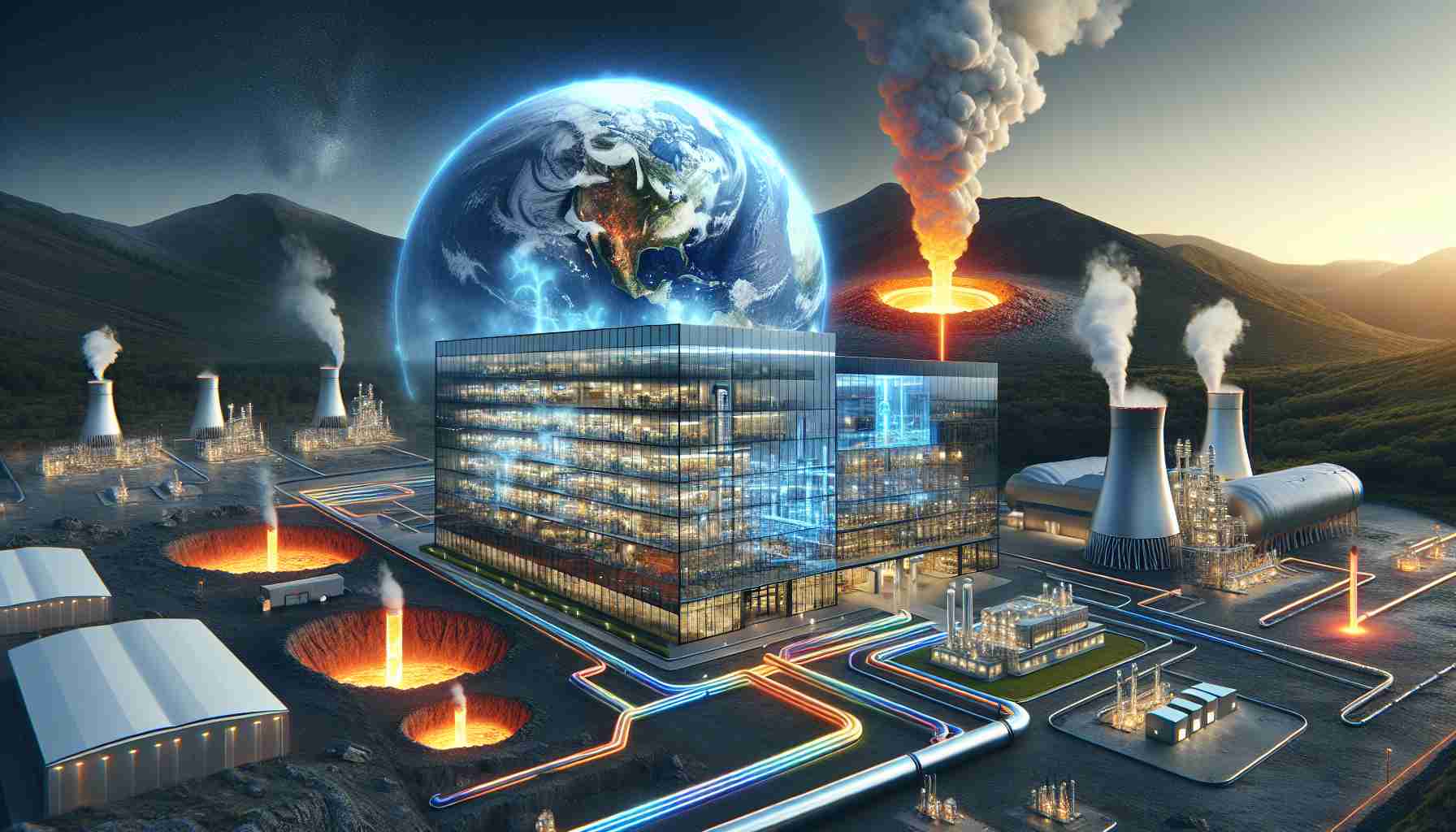
In an era where energy consumption is skyrocketing due to artificial intelligence, major technology companies are exploring innovative solutions. One of the leading possibilities is geothermal energy, which is increasingly being viewed as a viable alternative for powering energy-hungry data centers.
As technology firms forge alliances with geothermal start-ups, they aim to shift towards cleaner energy sources. These collaborations have intensified over the past year, reflecting a growing commitment to low-emission initiatives. For instance, Meta has recently engaged with Sage Geosystems to employ cutting-edge Geopressured Geothermal technology, aspiring to deliver significant baseload power by 2027.
While geothermal energy is touted for its potential, it is not without its challenges. Among these are the high initial costs and the complexities surrounding regulatory approvals. Compounding the situation, traditional energy sources like fossil fuels remain more accessible and less costly for immediate energy needs, causing some tension in the market.
Despite the obstacles, advancements in drilling technology, similar to oil and gas techniques, could open new avenues in geothermal resource extraction. According to reports from the International Energy Agency (IEA), improvements in geothermal could make it financially competitive with solar and wind energy by 2035. As tech giants push for renewable energy solutions, the stage is set for geothermal to play a crucial role in a sustainable energy future.
Geothermal Energy: The Future of Sustainable Data Center Power
Geothermal energy has emerged as a revolutionary solution for powering the tech industry’s energy-intensive data centers. As artificial intelligence applications surge, major tech companies are intensifying efforts to adopt this cleaner energy source, forging vital partnerships with geothermal start-ups. This trend signifies a pivotal shift towards sustainability in the technology sector.
Innovations in Geothermal Technology
Companies like Meta are at the forefront of utilizing geothermal energy, having partnered with Sage Geosystems to implement Geopressured Geothermal technology. This innovative approach aims to harness the Earth’s heat more effectively, aspiring to provide substantial baseload power by 2027. Such progress illustrates the potential for geothermal systems to support the continuous energy demands of modern data centers.
Pros and Cons of Geothermal Energy
Pros:
– Sustainability: Geothermal energy is a renewable resource that emits significantly lower greenhouse gases compared to fossil fuels.
– Baseload Power: Unlike intermittent renewable sources like solar and wind, geothermal can provide a constant energy supply.
– Reduced Operational Costs: Once established, geothermal plants can have lower long-term operational costs compared to traditional energy sources.
Cons:
– High Initial Investment: The cost of drilling, setting up infrastructure, and gaining regulatory approvals can be prohibitively high.
– Geographic Limitations: Geothermal resources are location-dependent, which can limit accessibility in certain regions.
– Market Competition: Traditional fossil fuels are often cheaper and more readily available, creating challenges for geothermal’s market penetration.
Market Insights and Trends
A report by the International Energy Agency (IEA) projects that advancements in geothermal extraction technology could make it financially competitive with solar and wind energy by 2035. This forecast aligns with a broader market trend focused on green technology, prompting more tech firms to invest in clean energy sources. As the demand for energy-efficient data centers grows, the integration of geothermal energy may become a strategic advantage.
Use Cases for Geothermal Energy
The application of geothermal energy extends beyond data centers. It can be effectively harnessed for:
– Residential Heating: Geothermal heat pumps are increasingly used for home heating.
– Industrial Processes: Various industries can utilize geothermal heating for production processes.
– District Heating: Cities can implement geothermal systems to supply heat for public buildings and services.
Security Aspects and Sustainability
As technology firms shift towards sustainable energy, safeguarding sensitive data and ensuring energy reliability become paramount. Geothermal energy systems, with their low environmental impact and steady power supply, can enhance sustainability goals while ensuring compliance with stringent data regulations.
Predictions for the Future
Looking forward, the synergy between technological advancements and environmental sustainability suggests a promising future for geothermal energy. As investment continues to flow into this sector, both the efficiency of geothermal extraction and its affordability are expected to improve, positioning it as a cornerstone of the renewable energy landscape.
In conclusion, geothermal energy presents a viable path for tech companies aiming to meet increasing energy demands while committing to a sustainable future. With ongoing partnerships and innovations set to reshape the energy landscape, it is clear that geothermal energy is poised for significant growth and development in the coming years.
For more information on renewable energy innovations, visit Energy.gov.



